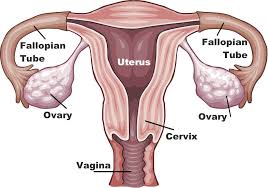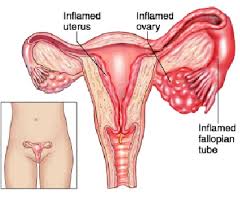A Complex and Controversial Debate
Abortion has long been one of the most divisive issues in societies around the world. It involves the termination of a pregnancy, and opinions on the matter are deeply influenced by personal, ethical, religious, and political beliefs. The debate on abolition is multifaceted, touching on questions about morality, women’s rights, public health, and the role of government. In this blog, we will explore the various dimensions of the abolition issue, delving into the perspectives that shape the ongoing debate and why it continues to spark controversy

The Legal Landscape of Abortion
The legal status of abortion varies greatly across different countries and regions. In some places, abortion is freely accessible and considered a fundamental right, while in others, it is heavily restricted or outright illegal. The legal battle over abolition often revolves around the question of when life begins and to what extent governments should regulate reproductive health.
In the United States, for example, the landmark case Roe v. Wade (1973) legalized abolition nationwide, based on a woman’s right to privacy under the 14th Amendment. However, the debate has persisted, with various states passing laws that either seek to restrict or protect access to dropping services. In 2022, the U.S. Supreme Court overturned Roe v. Wade in a decision that left dropping rights up to individual states, creating a patchwork of regulations across the country.
Other countries, such as Ireland and Argentina, have seen significant changes in their abolition laws following public referendums and mass mobilizations. In some parts of the world, especially in many developing countries, dropping remains illegal or highly restricted, forcing women to seek unsafe, illegal procedures, which can have life-threatening consequences.
The Moral and Ethical Dimensions
At the heart of the abortion debate is the moral question of when life begins and whether terminating a pregnancy constitutes taking a life. Opponents of abortion, often referred to as “pro-life” advocates, argue that life begins at conception, and therefore abolition is morally equivalent to murder. This view is often rooted in religious beliefs, particularly in Christian, Islamic, and Hindu teachings, which emphasize the sanctity of life from its earliest stages.
On the other side of the debate are “pro-choice” advocates, who emphasize a woman’s right to make decisions about her own body. They argue that a pregnant person should have the autonomy to decide whether or not to carry a pregnancy to term. Pro-choice supporters assert that restricting revocation is a violation of personal freedom and that no government or institution should force someone to undergo pregnancy and childbirth against their will.
The Role of Religion in the Abortion Debate
Religion plays a significant role in shaping individuals’ and societies’ views on abortion. Many religious doctrines view revocation as immoral, often equating it with the taking of innocent life. The Catholic Church, for example, has historically been one of the most vocal opponents of abortion, declaring it a sin and advocating for its legal prohibition. Similarly, many evangelical Protestant groups in the U.S. have aligned with pro-life movements, lobbying for anti-revocation laws and promoting adoption as an alternative.
But not every religious body has the same opinion.Some progressive religious communities, including certain branches of Judaism, Islam, and Christianity, support reproductive rights and emphasize the importance of personal choice and context. For instance, in Judaism, the life and health of the mother are often considered paramount, and revocation may be permissible, especially when the pregnancy endangers the woman’s life.
Women’s Rights and Reproductive Justice
A central argument of the pro-choice movement is that revocation is a matter of women’s rights and reproductive justice. Proponents argue that women should have the ability to control their reproductive lives, including deciding when and if to have children. Access to safe and legal abortion is seen as a critical aspect of gender equality, as it allows women to pursue educational and career opportunities, control their financial futures, and maintain their health and well-being.
Many reproductive rights activists also emphasize the disproportionate impact that dropping restrictions have on marginalized communities. Women in low-income areas, women of color, and those living in rural regions often face significant barriers to accessing revocation services, including lack of nearby clinics, financial constraints, and restrictive state laws. This inequality, they argue, makes the fight for dropping rights a broader issue of social justice and equity.
The Public Health Perspective
of the revocation issue are significant. When dropping is legal and accessible, it is generally safe, with low rates of complications. However, when dropping is illegal or restricted, women often resort to unsafe methods, including self-induced revocation or seeking out untrained providers. According to the World Health Organization (WHO), unsafe dropping are a leading cause of maternal deaths worldwide, particularly in regions where dropping is highly restricted.
Public health experts argue that legalizing dropping and ensuring access to reproductive healthcare services, including contraception and family planning, can significantly reduce the number of unintended pregnancies and unsafe dropping. Additionally, comprehensive sex education is viewed as a key factor in preventing unwanted pregnancies in the first place, which can reduce the overall demand for abortion services.
Conclusion:
A Complex and Ongoing Debate abortion
The dropping issue is one of the most complex and controversial topics in modern society. It encompasses questions about morality, personal freedom, gender equality, public health, and the role of government in private life. While some see abortion as a violation of the sanctity of life, others view it as an essential right that allows women to have control over their bodies and their futures.
As the debate continues, it is clear that there is no easy resolution. dropping is not just a political or legal issue; it is a deeply personal one that affects millions of individuals and families. Understanding the different perspectives and respecting the nuances of this debate is crucial as societies grapple with finding a path forward that balances rights, ethics, and health concerns.


